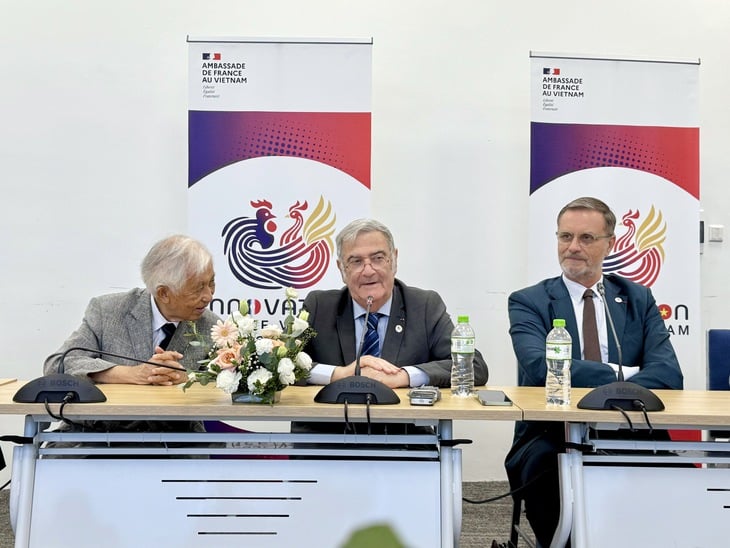
Professor Serge Haroche (center) shares with the press in Hanoi on October 3 - Photo: DUY LINH
Professor Serge Haroche, a French quantum physicist who won the 2012 Nobel Prize in Physics, believes that a technologically superior future must be built on a foundation of fundamental science .
At the age of 81, Professor Serge Haroche was still able to stand for hours and talk to hundreds of students at the National Innovation Center in Hanoi on the morning of October 3. Without shouting or using slogans, he patiently went from his expertise to the conclusion: no research is useless and the fundamental role of basic science cannot be ignored.
The role of basic science
At the beginning of his sharing with students, Professor Haroche raised a seemingly simple but difficult to answer question for many people: "What do we do scientific research for? Is scientific research for contemplation of a problem, to understand how the world works, or for application, to create tools to serve human life and bring economic benefits?"
The answer, according to the French professor, depends on who is asked. Among them, businesses value profits more, seeing basic research as a luxury - which he says is "shortsighted" because basic science and applied science are two sides of the same coin, inseparable from each other.
If we only look at the immediate benefits and ignore the foundational stage of basic scientific research, according to Mr. Haroche, many electronic devices that people are using and benefiting from today would not exist.
He asserted that no basic scientific research is useless, but simply, it needs time to show its usefulness.
For example, in 1862, physicist and mathematician James Clerk Maxwell published his famous Maxwell's equations, but they were considered useless because they could not be proven and applied in practice.
By 1888, when Mr. Heinrich Hertz performed his little experiment, it showed that electromagnetic waves as Mr. Maxwell's idea were real and they could travel through rooms.
When asked what this meant, Hertz simply replied that the experiment had no effect but was only to prove Maxwell's equations correct. "There are mysterious electromagnetic waves that cannot be seen with the naked eye, but they exist," he said. And from Maxwell's equations and Hertz's experiments, today we have television, radio and many other things that use radio.
"A lot of basic scientific research is needed, no one can imagine how the future will develop. All our imaginations about the future will at some point be naive," said Professor Haroche after citing Mr. Maxwell's research that was called "useless" more than 150 years ago.
Citing many other examples such as the global positioning system (GPS) or magnetic resonance imaging machines, Mr. Haroche affirmed that without basic science, there would be no technological achievements and no technological future.
Vietnam's advantages
In a conversation with the press afterward, Mr. Haroche humorously and modestly said that he probably would never have been interviewed if he had not won the Nobel Prize in Physics in 2012. And in fact, as he shared, he himself never considered that as a goal when starting his scientific research career.
When asked where Vietnam should start in the quantum race, he did not hesitate to answer immediately: it must be from basic science and to have a developed basic science, it is necessary to have talent and proper training. Vietnam's advantage, according to the French professor, is its stable political system, thereby creating conditions for long-term strategies and projects on the development of basic science and technology.
According to him, it is necessary to create more favorable conditions for young researchers to conduct research and freely choose their research, because basic science is the bridge leading to applied science. However, the first important thing is to have a generation of students with good qualifications in mathematics, physics, and chemistry, and in this regard, he assessed that Vietnam has a young generation with increasingly good qualifications.
"They can be sent to study abroad, but the important thing is that they return home and are allowed to have their own research and laboratory. China has been very successful in this area," he said.
In particular, he shared the belief that a Vietnamese scientist may not earn as much money when returning home as when working in the US or Europe, but patriotism is abundant and always available.
"Young people need fundamental support, and the state needs to have a long-term supporting role," he recommended. Vietnam's current initiatives in science and technology are all good, but to implement them, according to Professor Haroche, in addition to good conditions for talented people to explore and develop quickly, there needs to be quick adaptation and open development to exchange and learn from experiences from other countries.
Professor Serge Haroche was born in 1944 in Morocco and moved to France with his family at the age of 12. In 2012, he and American scientist David Wineland were awarded the Nobel Prize in Physics for finding a way to measure quantum particles, an advance that paved the way for the computer revolution of the 21st century.
Professor Haroche said he researched quantum physics, specifically lasers, when there were already a number of people doing research. According to the professor, time, trust and money were necessary, but what made his research successful were the people he learned from and worked with.
Source: https://tuoitre.vn/2012 Physics Nobel Laureate Dan Sinh Vien Viet Nam Hay Nghien Cuu Dieu Minh Tin Is Correct


![[Photo] Solemn opening of the 8th Congress of the Central Public Security Party Committee, term 2025-2030](https://vphoto.vietnam.vn/thumb/1200x675/vietnam/resource/IMAGE/2025/10/4/f3b00fb779f44979809441a4dac5c7df)


![[Photo] General Secretary To Lam attends the 8th Congress of the Central Public Security Party Committee](https://vphoto.vietnam.vn/thumb/1200x675/vietnam/resource/IMAGE/2025/10/4/79fadf490f674dc483794f2d955f6045)

![[Photo] Bustling Mid-Autumn Festival at the Museum of Ethnology](https://vphoto.vietnam.vn/thumb/1200x675/vietnam/resource/IMAGE/2025/10/4/da8d5927734d4ca58e3eced14bc435a3)
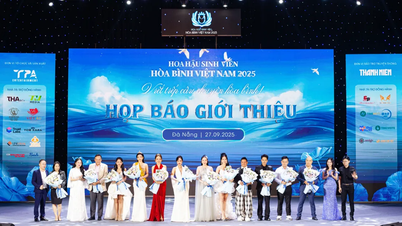

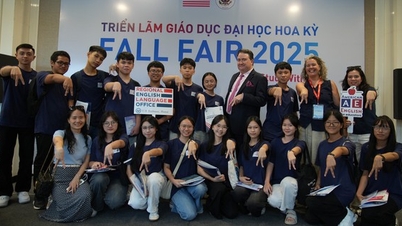






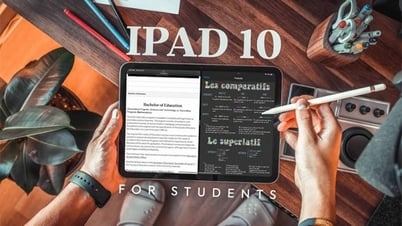
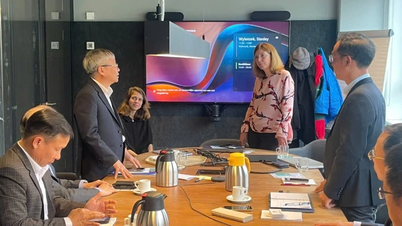






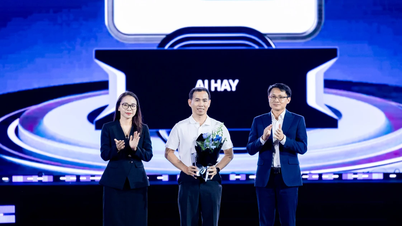





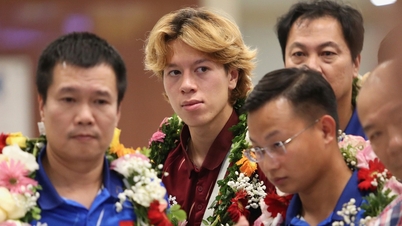

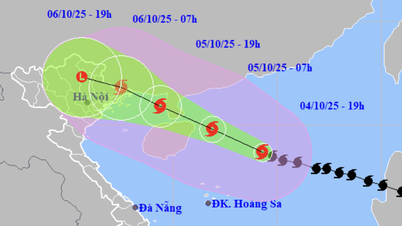
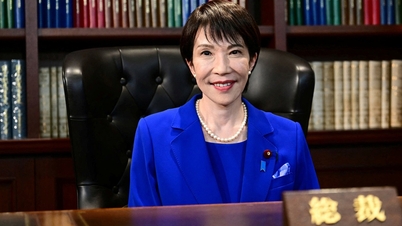
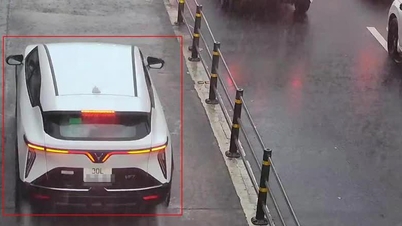


























![[VIDEO] Summary of Petrovietnam's 50th Anniversary Ceremony](https://vphoto.vietnam.vn/thumb/402x226/vietnam/resource/IMAGE/2025/10/4/abe133bdb8114793a16d4fe3e5bd0f12)

![[VIDEO] GENERAL SECRETARY TO LAM AWARDS PETROVIETNAM 8 GOLDEN WORDS: "PIONEER - EXCELLENT - SUSTAINABLE - GLOBAL"](https://vphoto.vietnam.vn/thumb/402x226/vietnam/resource/IMAGE/2025/7/23/c2fdb48863e846cfa9fb8e6ea9cf44e7)



















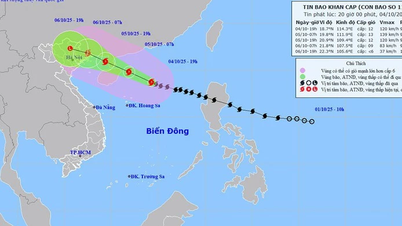

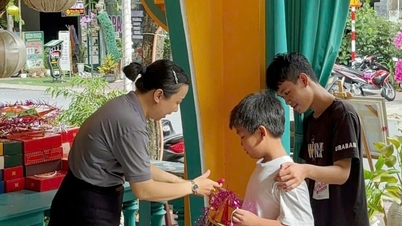












Comment (0)